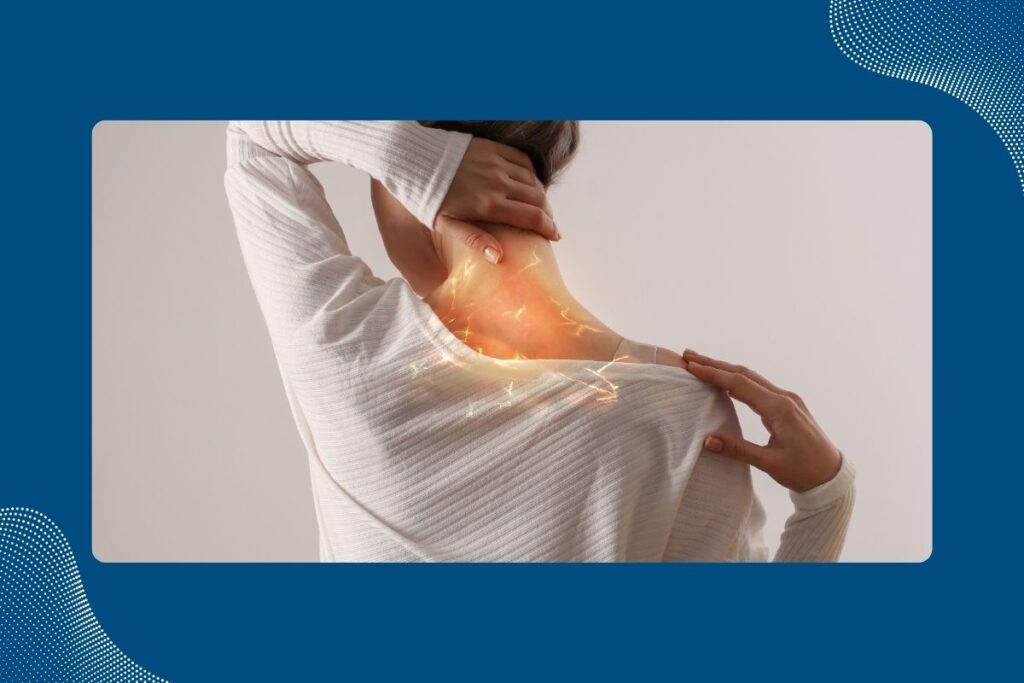Can Cracking Your Neck Lead to Arthritis?

Neck cracking is a common habit for many people, often done to relieve tension or discomfort. But can this seemingly harmless action lead to arthritis? In this blog, we explore the connection between neck cracking and arthritis, separating fact from fiction to provide a clear understanding of the potential risks involved.
Understanding Neck Cracking
When you crack your neck, what you hear is the sound of gas bubbles rapidly collapsing within the synovial fluid that lubricates your joints. This phenomenon, known as joint cavitation, creates the characteristic popping noise. Many people crack their necks to release tension, increase mobility, or simply out of habit, often experiencing a sense of relief afterward.
What is Arthritis?
Arthritis is a condition characterized by inflammation of the joints, leading to pain, stiffness, and swelling. There are different types of arthritis, with osteoarthritis and rheumatoid arthritis being the most common. Osteoarthritis involves the breakdown of cartilage, while rheumatoid arthritis is an autoimmune disorder where the immune system attacks the joints. Both types can cause significant discomfort and impair mobility.
The Connection Between Neck Cracking and Arthritis
Concerns about neck cracking leading to arthritis stem from the belief that repeatedly stressing the joints might cause wear and tear. However, scientific studies and expert opinions suggest that occasional neck cracking is unlikely to cause arthritis. It’s important to distinguish between habitual, forceful cracking and occasional, gentle adjustments. There is no substantial evidence directly linking neck cracking to the development of arthritis. Instead, the primary risks associated with neck cracking are more immediate and mechanical in nature.
Potential Risks of Neck Cracking
While neck cracking itself doesn’t cause arthritis, excessive or improper neck cracking can lead to other issues. Frequent forceful cracking can strain the ligaments, irritate the nerves, and potentially lead to joint instability. Conditions such as ligament damage or cervical spine injuries can arise from aggressive or improper neck manipulation. Therefore, it’s crucial to practice moderation and proper technique if you do crack your neck.
Safe Practices for Neck Health
Maintaining neck health is essential for overall well-being. Here are some tips to relieve neck tension safely:
- Stretching: Gentle neck stretches can help alleviate tension without the need for cracking.
- Massage: Regular neck massages can reduce muscle tightness and improve circulation.
- Proper Posture: Maintaining good posture, especially during long periods of sitting or working at a computer, can prevent neck strain.
- Exercise: Regular exercise can strengthen the muscles around the neck and shoulders, providing better support for the neck.
When to See a Doctor
If you notice persistent pain, swelling, or a decreased range of motion in your neck, it’s time to consult a healthcare professional. These symptoms could indicate underlying issues that require medical evaluation. Early intervention can prevent complications and improve treatment outcomes. For those with chronic neck pain or a history of arthritis, a healthcare provider can recommend appropriate treatments and management strategies.
Key Takeaways
While the idea that cracking your neck leads to arthritis is largely a myth, it doesn’t mean the habit is entirely risk-free. Practicing safe techniques and moderation can help maintain neck health without causing harm. Remember, if you’re experiencing chronic neck pain or discomfort, seeking professional advice is the best course of action. Maintaining good neck health practices can prevent issues and ensure long-term joint well-being.
FAQs
1. Does cracking your neck cause arthritis?
No, cracking your neck does not cause arthritis. This is a common misconception. Arthritis involves joint inflammation due to aging, genetics, or autoimmune disorders. Neck cracking releases gas bubbles in the synovial fluid, creating a popping sound that can relieve tension but does not cause arthritis. However, frequent or forceful neck cracking can strain ligaments and lead to joint instability, so it should be done cautiously.
2. Can cracking your neck be harmful even if it doesn’t cause arthritis?
Yes, cracking your neck can still be harmful, even if it doesn’t cause arthritis. Occasional neck cracking is generally safe, but doing it frequently or with excessive force can lead to ligament strain, nerve irritation, and joint instability. Therefore, it’s important to practice moderation and proper technique. If you have persistent neck pain, seek professional advice.
3. What are safe alternatives to cracking your neck to relieve tension?
Safe alternatives to cracking your neck include gentle neck stretches, regular neck massages, maintaining proper posture, and strengthening neck and shoulder muscles through exercise. These methods can help relieve tension without the risks associated with neck cracking. If these do not help, consult a healthcare professional for further evaluation and treatment.
4. Why do some people feel the need to crack their neck frequently?
People often crack their necks to relieve tension, increase mobility, or out of habit. The act of cracking can create a sense of relief and temporarily improve the range of motion due to the release of gas bubbles in the synovial fluid. However, frequent neck cracking can become a habit, and it’s important to be cautious to avoid potential negative effects.
5. When should I be concerned about my neck cracking?
Be concerned about neck cracking if it is accompanied by pain, swelling, decreased range of motion, or neurological symptoms like numbness or weakness. These signs could indicate an underlying issue that requires medical evaluation. Persistent or severe symptoms warrant a visit to a healthcare professional to rule out serious conditions and receive appropriate treatment. Regular, painless cracking is usually not a cause for concern, but moderation and proper technique are essential.